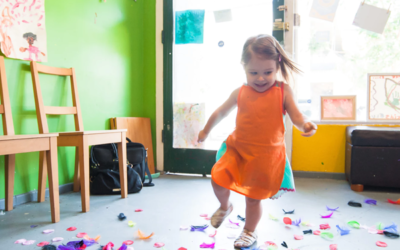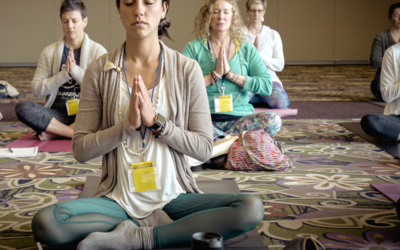Anxiety is like fire: It can keep us safe and warm, or completely devastate our property and our lives. It’s good to be a little anxious at times. When walking down a deserted street at night, anxiety keeps us on alert and ready to fight or take flight should a dangerous situation arise.
But for many people, especially adolescents, anxiety can become the norm instead of the exception. Just walking into a classroom or being with a group of people they don’t know can become crisis situations. And, the more they experience these scary events, the more anxiety becomes a chronic condition.
Here are 4 things parents and teachers should know about adolescent anxiety.
1. Anxiety Refers to Physical Symptoms Associated with Negative Thoughts
Negative thoughts such as, “No one will like me,” or “Everyone is going to think I’m stupid” come first. These thoughts are then followed by physical symptoms such as a stomach ache, diarrhea, or shaking and shallow breathing. Young people need to learn how to not only shift their thinking (“This will feel awkward but I’ll be okay”) but also cope with the physical stress (take slow, deep breaths). This will help kids know without a doubt they can handle uncomfortable feelings instead of avoiding them.
2. Dealing with Anxiety Requires Problem Solving Skills
Life is full of uncertainties and gray areas. Parents of very young children help them navigate through these situations. But adolescents must be equipped with problem solving skills so they may tolerate uncertainty instead of avoiding it, as avoidance only makes things worse and gives anxiety more power.
3. The Adolescent Mind is More Sensitive to Environmental Stress
The adolescent mind is a jumble of chemical changes that can make any situation seem like time spent in a fun house. These hormonal changes make adolescence a particularly challenging time to cope with anxiety.
4. Anxiety is a Vicious Cycle
When young people are anxious, it’s easy for the adults around them to become anxious as a response. But, the more anxious parents and teachers are, the more controlling and inflexible they may become.
As adults, it’s important we manage our own anxiety around our kids and students so we can manage the overall situation much more effectively.
If you or a loved one is struggling with anxiety, therapy can help. If you’re interested in exploring counseling, please contact us today. We would be happy to speak with you about how we may be able to help.

How to Help Your Young Child Get Ready for the School Year After Summer Break
It’s that time of year again when big yellow buses can be seen driving around the neighborhood and school bells begin ringing. Going back to school can definitely be an exciting time for parents and children.But for some kids, especially younger ones, going back to...
A Meditation Exercise You Can Do with Your Child
As a busy parent of a young child, you may find it challenging to find the time or space to meditate. One solution is to bring the two together, and have your child meditate with you.Meditating with Young ChildrenFor children five and under, it will be difficult for...
4 Steps for Setting Academic Goals with Your Child
When children are taught how to set and achieve goals, they learn that decisions have consequences and that hard work earns rewards. As your child sets and works towards academic goals, their self-confidence will grow, and they’ll take pride in themselves and their...
Quick! Get Your "Top Tips For Getting the Most Out of Counseling" Cheatsheet!
Like some of what you've seen and want to see more? Sign up for our Mailing List for a free cheat sheet on making the most out of counseling. Our list members also gain access to exclusive specials and announcements, as well as the latest from our Counseling Blog!





